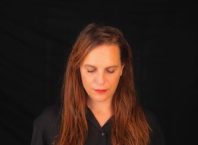The international feel of Tel Aviv is such that an additional 70 culture enthusiasts from Russian speaking countries blend right in. The group of Festival directors, Theatre directors, Dramturgs, translators and journalists arrived in Israel to take part in IsraDrama 2009, from December 3 – 7th. An initiative of the Institute of Israeli Drama to introduce the international theatre community to Israeli drama, IsraDrama has taken place for the past several years, each time focusing on a different language community. Artistic director for IsraDrama 2009 is Professor Gad Kaynar.
The Institute was founded in 2000 by Noam Semel, General Director of the Cameri Theatre in Tel Aviv, after the demise of poet, playwright, author and director Hanoch Levin. Translated into 18 languages and performed worldwide, Levin’s plays have a universal appeal, and this year was no exception – the response to his work was immediate and powerful. IsraDrama opened on Thursday, December 3, with introductions all around. Instant bonding was guaranteed as headphones with simultaneous translation were exchanged back and forth between neighbors depending on whether the speaker was Russian or Israeli, with some linguistic surprises along the way. “And the Rat Laughed” a chamber opera by Nava Semel with music composed by Ella Milch Shariff, was the opening performance of the week long event.
On Friday, December 4, a performance of Requiem, the last play directed by Levin, was preceded by a performance of a different kind. Michael Handelzalts, Haaretz Theatre critic who has not only followed Levin’s career since its inception, but whose eclectic combination of sardonic wit and unabashed love of theatre make him an excellent commentator on Levin. Handelzalts spoke extemporaneously, with selections from Levin’s songs and plays performed by Norman Issa, Alexander Sanderovich and Limor Oved.
Taking Requiem, a play which as Handelzalts says “deals intensively with the moment of death” as his starting point, he took the audience back to 1968, when Levin’s political satire “You and Me and the Next War” was first performed. The play was directed by Edna Shavit with a cast of four university students, which included Kaynar. Setting the stage for his audience, Handelzalts described Israel’s situation at that time: “At the time of the Six Day War in 1967, there was a sense of anxiety, depression and tension in the air, a fear that this young country was on the verge of disappearing. Within six days the picture was completely different, Israel had not only survived but captured territory – and with this disaster we live until this very day.” Handelzalts pointed out that Levin’s play emphasized that which the general atmosphere of euphoria following the war did its best to ignore: the price that young men had paid with their lives, saying “We won, but people died, and that should never be forgotten.”
In addition to providing the political, historical background and review of Levin’s work, Handelzalts discussed death as a theme which can be followed throughout Levin’s writing, creating a connection between the early political satire and later dramas, such as Requiem. The overwhelming reaction of the visitors to the play was strong, yet each was affected differently and responded to different elements. Theatre critic Marina Timasheva said on exiting the theatre, “I cannot comment on the text, it is half Chekov, but the performance is brilliant, we have nothing of this kind.” Askhat Mayemirov from Kazakhstan, pronounced Requiem “Super directing, very original theatrical language.”
The positive mood continued in the days to come, with “Requiem” recurring in conversation. Theatre critic Irina Myagkova said that she was “astonished by the general high level of theatre” she saw in Israel. Nabi Abdurakhmanov, Director of a Youth Theatre in Uzbekistan said that he wished his students could see Requiem, explaining, “The sets are created in a style from 10 years ago (for example, people portraying houses and trees) but there is a very clear style of acting that comes from deep within. Together this makes something very interesting. If it were not so deep inside it can look like old style, but because the acting comes from looking deep inside the soul, it can be touching now.”
It comes as no surprise to hear that by the week’s end, Requiem, which is based on three short stories by Anton Chekov, was invited to perform in two festivals marking 150 years to Chekov’s birth in Taganrov (the city of his birth) and Moscow, as well as the International Theatre Festival in the city of Ferm in the Ural Mountains. Maria Koublanova, administrative director of the festival who attended IsraDrama along with Boris Milgrom, the festival’s artistic director described the festival as “exploring the profession of the director in context with actors, playwrights and critics, examining how a director’s choices are influenced by the context and space in which he finds himself. Directors from all over Russia attend the festival. Those who have selected the plays to be performed must defend their choice before an audience. Sometimes there may be a conflict: a group of young directors may criticize a play as too old-fashioned, or people may complain that a play is too difficult to understand.”
Requiem has also been invited by the Russian director Mark Rosovsky who announced that he will also produce Joshua Sobol’s Ghetto. Additional plays by Sobol – Voices in the Night and Kool’s Last Hour will be translated into Russian and performed by the Sobernik theatre in Moscow and the National Theatre of Tabilisi, in Georgia will perform Ghetto. Additional plays that attracted the guests’ interest were Prime Time by Boaz Gaon and Alma and Ruth by Goren Agmon, as well as other plays by Hanoch Levin, Hillel Mittelpunkt and Edna Mazya.
IsraDrama is produced with the cooperation of the Tel Aviv Municipality, Ministry of Foreign Affairs, Ministry of Culture and Sport – Culture Authority and with the support of the Joshua Rabinovich Foundation, and the Rich Foundation.





